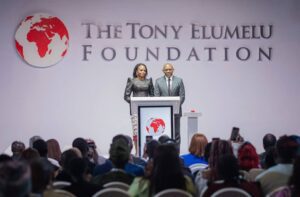
Source: Ghanaija
In the vibrant city of Lagos, Nigeria, a young musician named Chinedu was deeply fascinated by the rich history of music. He played the violin, an instrument not commonly found in the bustling streets of Lagos. Chinedu’s love for music started early, inspired by his grandmother, who often played classical music records. Beethoven, Mozart, and Bach were names that resonated in his household, shaping his understanding and appreciation of music.
Chinedu’s journey into music was not just about learning to play; it was about understanding the roots and evolution of the sounds he loved. He often pondered how the intricate compositions of the classical era influenced the modern genres he enjoyed, like Afrobeat and highlife. To explore this connection, Chinedu decided to create a unique blend of classical music with contemporary African rhythms.
Meanwhile, in Cape Town, South Africa, another musician, Thandi, was making waves with her unique sound. Thandi was a pianist trained in classical music, but her heart beat for jazz. The rich, soulful melodies of jazz, interspersed with the structured, precise notes of classical pieces, formed the core of her compositions. Thandi believed that the discipline and technical skills she acquired from classical music training allowed her to push the boundaries of jazz.
One evening, Chinedu watched a documentary on the influence of classical music on various modern genres. He was intrigued by the story of how African American spirituals, deeply rooted in the experiences of slavery and freedom, were influenced by the hymn structures of European classical music. This fusion gave birth to genres like blues and jazz, which later influenced rock and roll. This realization struck a chord with Chinedu, who saw parallels in how music could evolve and adapt across continents and cultures.
Inspired, Chinedu reached out to Thandi. They had met briefly at a music festival in Johannesburg, where they had discussed their mutual passion for blending classical music with modern sounds. Chinedu proposed a collaboration to explore the influence of classical music on their respective genres. Thandi, excited by the prospect, eagerly agreed.
The duo began by exploring the works of composers who had significantly impacted music history. They dissected the compositions of Beethoven, focusing on his use of motifs and themes that were later echoed in modern music. They examined how Mozart’s ability to blend melody and harmony influenced the structure of contemporary pop songs. They studied Bach’s counterpoint technique, which found its way into the complex arrangements of modern electronic music.
Chinedu and Thandi decided to create a piece that paid homage to these classical influences while incorporating the vibrant rhythms and sounds of their African heritage. They called their project “Echoes of Time,” symbolizing the timeless nature of music and its ability to transcend eras and boundaries.
For their first composition, they chose to start with a classical motif from Beethoven’s Symphony No. 5. Chinedu played the iconic four-note motif on his violin, while Thandi improvised a jazz piano accompaniment, adding syncopated rhythms and bluesy chords. They then introduced traditional African percussion instruments, like the djembe and the shekere, to add a distinct cultural flavor.
As they worked on “Echoes of Time,” Chinedu and Thandi discovered how classical music’s structure and theory provided a foundation upon which modern genres could build and innovate. The disciplined approach of classical music allowed them to experiment with different styles and create something entirely new. Their composition seamlessly blended the precision of classical music with the spontaneity of jazz and the rhythmic vitality of African music.
Their collaboration did not go unnoticed. Music enthusiasts and critics from around the world praised “Echoes of Time” for its innovative fusion and respect for musical heritage. The piece was performed at the Cape Town International Jazz Festival, where it received a standing ovation. Audiences were captivated by the way Chinedu’s violin and Thandi’s piano danced together, weaving a tapestry of sound that transcended cultural and temporal boundaries.
Following their success, Chinedu and Thandi decided to take their project on tour. They traveled across Africa, from Nairobi to Accra, sharing their music and inspiring young musicians to explore the rich connections between classical music and modern genres. In each city, they conducted workshops, teaching the fundamentals of classical music while encouraging experimentation and creativity.
In Accra, Ghana, they met Kwame, a talented young guitarist who was eager to learn. Kwame had a deep appreciation for highlife music but was fascinated by the complex arrangements of classical compositions. Under the mentorship of Chinedu and Thandi, Kwame began to incorporate classical elements into his highlife performances, creating a fresh, innovative sound that resonated with audiences.
The tour culminated in a grand performance in Lagos, where Chinedu and Thandi were joined by the musicians they had mentored along the way. The concert was a celebration of musical evolution, showcasing how classical music’s influence permeated various modern genres. From the intricate guitar solos of Kwame to the soulful saxophone of a young musician from Nairobi, the performance was a testament to the enduring legacy of classical music.
Chinedu and Thandi’s journey demonstrated that music is a universal language, capable of bridging gaps between cultures and generations. By exploring the influence of classical music on modern genres, they not only enriched their own musical expressions but also inspired others to appreciate the timeless beauty of music in all its forms. Their story is a reminder that while music may evolve, its essence remains, echoing through time and connecting us all.








